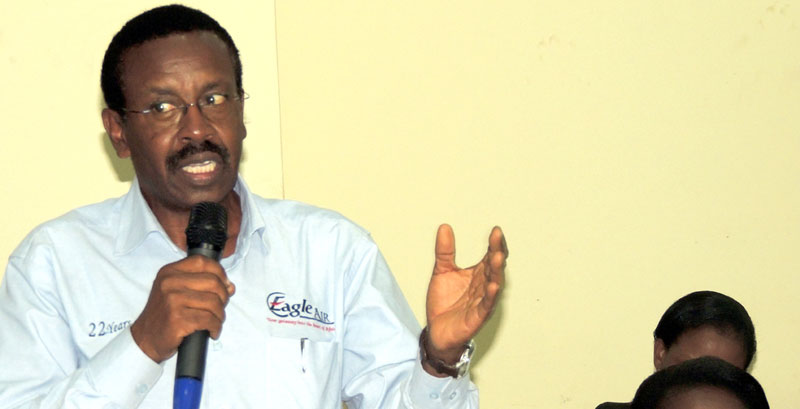Business
Gov’t ignoring our plight, Airline operators cry out
Owners of Ugandan based airlines have expressed anger at the government’s stance to ignore what they consider as hostile treatment by aviation regulators in neighbouring countries even though Uganda tries to maintain cordial ties with them.
The local airline operators made their plight known at the first ever stakeholders workshop that was organised by the Uganda Civil Aviation Authority (CAA) for stakeholders recently in Kampala.
Captain Tony Rubombora, one of Uganda’s most enduring local airlines said he faces a prohibitive charges of US$1000 in clearance fees every time he lands an aircraft in Tanzania.
His claim was supported by Philip Gill, the founder and CEO of Kajjansi-based Kampala Executive Aviation (KEA), who said he pays US$600 he lands his aircraft in Tanzania.
Rubombora said: “When you land in Tanzania, they give you a charge of US$ 1000 on top of other administrative charges. Kenya charges US$350 in clearance fees but go ahead to impose other administrative charges that all raise the costs to over US$600. On the contrar
y, Uganda does not charge anything apart from landing and navigation fees.”
He asked: “What happened to reciprocity? Why do we give our neighbours free entry when they are not ready to reciprocate the same treatment? If you charge the Tanzanian operator, the way they charge us, they will go back and think twice about it.”
Perhaps more dangerous, Gill noted he has tried in vain to secure permission or license that would allow his company to fly in and out of Kenya. Instead, whenever, he has tried to obtain the AOC, Kenyan authorities have rejected his application and rather urged him to give the business to a Kenyan company and settle for a commission.
This unfair treatment of Ugandan companies by neighbouring countries, according to Capt. Rubombora, makes foreign investors think that Uganda is more expensive to operate in and hence prefer to establish elsewhere.
The airline operators say that unless the government changes its stance, the industry will continue to suffer and its plans to re-establish a national career will suffer seriously.
The apparent free-entry policy accorded by Uganda to its neighbours is rooted in the government’s perhaps naïve pursuit of an open skies policy by which countries in Africa are supposed to liberalise their airspaces by removing entry restrictions between members states.
The operators say the financial and other obstacles faced by Ugandan airline operators in neighbouring countries have discouraged entrepreneurs from setting up business here and instead opted to base their operations in Kenya, since they can have free entry into Uganda.
But the cries of the local airline operators appear to have done little to change the strongly-held position of the responsible minister Aggrey Bagiire, who insisted that Uganda is not about to abandon its commitment to the open skies policy.
“Our resolve to promote open skies policy is unwavering,” said Bagiire.
The meeting that attracted a good number of representatives from the different players in the industry expressed gratitude towards CAA for providing a platform to air their concerns for the development of the sector.
With the anticipated increase in the volume of air traffic on the basis of growing prospects for oil development in Western Uganda over the coming four years, a regular forum between the regulator and the local players is expected to result into better positioning of local players for the oil-related transport opportunities.
Concerns over stringent regulation
Participants at the stakeholders meeting also expressed concern at what they called stringent regulations by CAA for anyone to start air operations in Uganda.
Former ministers and aviation entrepreneurs Mike Mukula and Francis Baby criticised CAA’s ‘unjustifiable’ regulations on the registration of airline businesses.
But the Chairman of the Board of CAA Eng. Edward Mike Ndawula, and other executives from the industry regulator blamed the tough restrictions on the law, which many acknowledged is the responsibility of the minister.
Perhaps recognizing their weak linkages with the industry, Eng. Ndawula made commitments to improve relations between CAA and the players. He also pledged to hold regular meetings with the air operators, besides availing more information to them and the general public online.
Comments




















